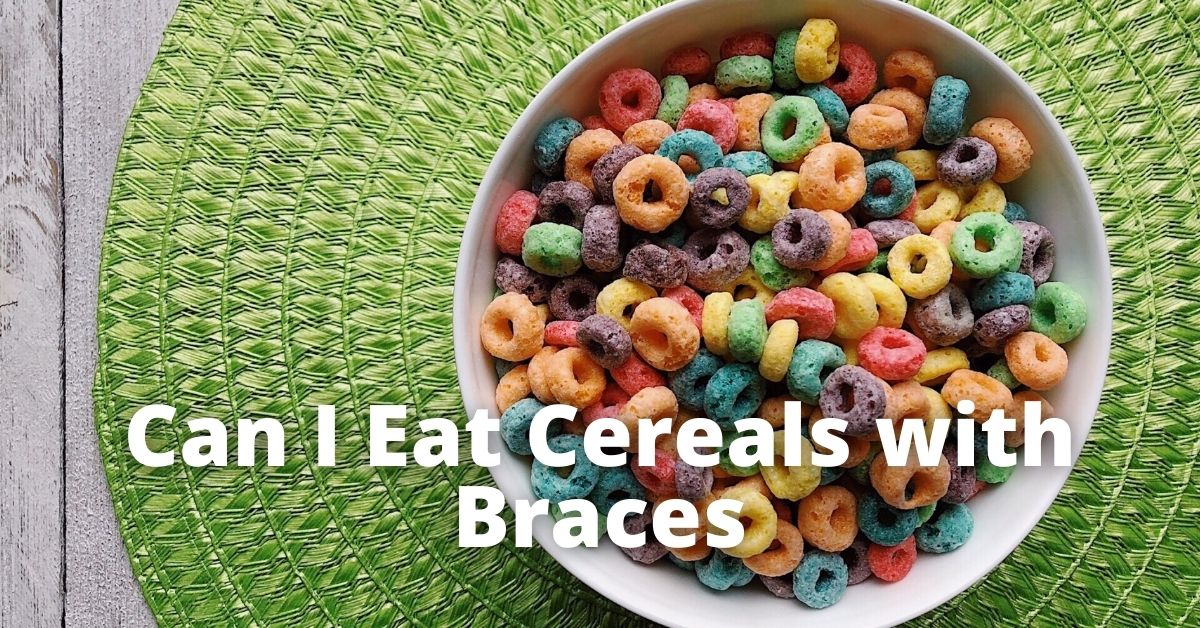No matter how weird they may initially seem, braces are the BEST SOLUTION if you have uneven teeth shape. These dental structures aid individuals to forever change their natural teeth projectile without having to go under the knife. However, with pros there are also many cons with wearing braces. One such is if you are trying to eat cereal with braces.
So if you have braces then it is better to start by choosing the right type of cereal. Dentures are designed to help your teeth reshape and not to support them. Therefore eating too crunchy or chewy cereals is a big NO-NO. Similarly, you may also want to avoid too sugary cereals as they always pose a higher possibility of tooth decay in case they get stuck within the wires. Apart from that, you will also have to follow extra caution when trying to eat cereal with braces.
Keep on reading until the very end for complete information.
Is cereal a good choice for individuals with braces?
This super healthy and delicious food arrives in many forms and tastes. And while you may not have to think much before consuming cereals of any kind in general, the whole notion changes if you have dentures attached to your teeth.
Consisting of hooks, bands, coil spring, bracket, and archwires, orthodontic braces have an intricate design that is sturdy enough for your teeth, but may not be robust for other external factors. Thus, sometimes when eating cereals the particles may break the wire or get stuck inside the hook, causing more damage to the structure.
But when ingested properly and after a proper dentist consultation then there’s absolutely nothing to be worried about.
How to eat Cereal with Braces?
Unlike regular days you may have to do some extra chores to enjoy a bowl of your favorite cereals without snapping the wires or misaligning the hooks.
Soak the contents
Cereals when eaten directly can be too tough for the dentures. And therefore the first step to a safe cereal-eating experience is to soak the contents in a liquid of your preference. This will allow the particles to be later ingested without having to worry too much.
Chew Slowly
Many-a-times individuals with braces rush eating their food, causing particles to grind against the wire or get stuck within the hooks. While this may not seem much of a problem initially it could trigger teeth and gum infections at an alarming rate. Therefore to stay safe against such conditions it is better to chew slowly and preferably at the molar and premolar parts. This will make the food digest properly and even prevent the front wires from being affected.
Eating cereal with braces is not as arduous as you may think. The secret is simply to follow your dentists’ orders properly, eat moist food and avoid putting unnecessary pressure on the brace arrangement.
How do I keep my dentures clean after eating Cereal?
Not only cereal, but after every meal, brace-owners should take extra care of their teeth. Given the close association of the design with their teeth, improper dental hygiene is bound to leave the braces ruined much faster. Therefore to avoid these, brushing and flossing should be done twice a day, once in the morning and once in the evening.
You may also want to invest in the right brush for the purpose as standard brushes may irritate the wires or your gums. When having a denture arrangement, electric toothbrush or spindle brushes generally fit all requirements. Due to their special design they get into all nooks and crannies and give a complete clean over to your mouth. Apart from that you may also:
Rinse with Mouthwash
Once done with brushing and flossing, always follow up with a fluoride mouthwash when having braces. The special composition will allow efficient removal of any and every food particle that may have made its way into the structure when eating cereals or other food items.
Filled with antiseptic and antimicrobial properties, using mouthwash is also a great way of getting rid of plaque causing bacteria within your mouth.
Avoid too sticky and sugary foods
Regardless if you have a brace or not, eating sugary cereals or other sticky food is never good for your dental health, Due to their high sugar content they serve as the perfect breeding ground for malicious bacteria and other microbes. This in turn results in the onset of periodontal disease which can aggravate further into more severe symptoms in no time.
Similarly, you may also want to avoid:
- Hard, sticky, or gummy candy
- Chewing gums
- Popcorn
- Crunchy chips
- Ice
- Meat with bones
- Whole hard fruits or raw veggies
- Nuts
- Whole pickles
- Hard pretzels
- Crunchy cookies
So, in short anything too hard, sticky, sugary, or salty should be avoided at all costs when you are having your dentures on. Based upon your teeth profile, your doctor may also advise you to include some other food items into this list.
Gargle with Saltwater
A remedy for inflammation or pain and soreness in the gums, gargling salt water is also an effective home remedy for keeping your dentures clean. Mostly advised by dentists, swishing salt water can come super handy after a recent brace implantation. Thanks to its high antimicrobial properties it keeps the arrangement squeaky clean and your mouth feeling fresh and good.
Take good care of your toothbrush
Using a damaged or worn out toothbrush to clean your teeth is a mistake that sadly many individuals do regularly. It is essential to remember that brushes are required to be changed every 3 months or as soon as they start wearing out. However, when ignored for long, such toothbrushes may actually do more bad than good.
From irritating the gums to exerting huge amounts of pressure on the dental wires, a bad toothbrush may lead to heavy expenses. The same also goes for a brush that is not rinsed regularly as it leads to gradual amalgamation of microbes which then gets transferred back to your mouth.
What should I do if my braces come off?
Although when installed and cared for properly, brackets or hooks in dentures never fall off, it’s not totally uncommon for them to loosen over time. So, if you too feel something’s wrong with your braces, it is better to have them checked by your orthodontist.
Trying to tackle the problem on your own may aggravate the case more and hence it is better to leave the task for the professionals. You never know when the whole arrangement may just come off or pierce the nearby sensitive muscles, leading to severe pain and bleeding, so why risk your safety???
Depending upon the severity, the professional may use orthodontic wax to secure the elements back into their place or prep you up for a whole new denture.
If you’re planning to get braces, you can check out this dentist in Germantown to get started.
You may also like:
Yellow Teeth Despite Regular Brushing | 5 Easy Home Remedies



